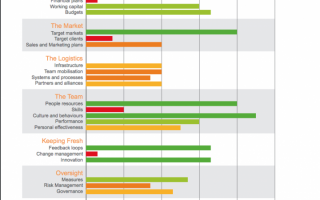As senior bosses and business owners we invest massive amounts of energy and passion into our businesses and rightly so. All the research evidence shows these to be key ingredients of business success - although spending far more time on work than family and other interests is also a dangerous place to be and that is a whole new topic.
Like any proud parent it is only natural that we become protective towards the businesses we have nurtured and shaped. Like proud parents we can be overly upbeat over progress steps and believe that big issues are really only bumps on the road to success. After all, if we can’t be confident in our own businesses future then who else will be? And as in many walks of life, from presidential elections to first dates, a confident positive vibe has been shown to smooth over many under the surface flaws.
The real danger comes when others around us family, staff, customers, suppliers and more who know us well, want to point out some of the less good areas that can be improved. Often they avoid doing so in case they create upset, stress or other negative emotions which will not be welcomed.
Only recently I was engaged on a consultancy appointment where the 3 equity owners felt strongly that their future profit expectations would be easily achieved, yet the 9 others being interviewed had views that were very opposite. In digging behind the rationale for this communication void none of the non equity owning staff wanted to be seen to be negative or going against the flow. It was easier to adopt a do nothing, say nothing approach. I had similar experiences when CEO of a 1000+ person company - the rush to share good news with me was like a stampede, the opposite effect was in place when bad news needed to be shared. All the time I genuinely felt I just wanted to be told things how they were, but that’s not how others were receiving me.
So what’s the solution to making people more comfortable and more likely to tell you your business baby may be less gorgeous than you thought? There are many solutions from having impromptu or planned social events to break down barriers, running confidential surveys, engaging business coaches, setting up feedback loops and suggestions schemes and the Cneqt Business DNA Diagnostic is one of the tools that can certainly be used too. The first step however is opening up our own minds and being approachable and open to all possibilities. Easier said than done but very worthwhile if you can master it.





